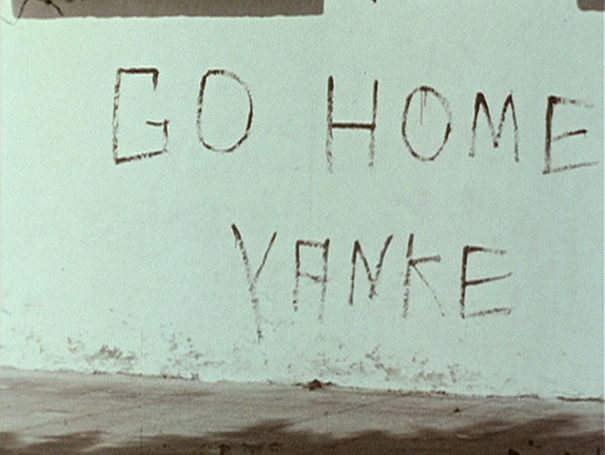The Good Neighbor Policy
By Sérgio Raimundo

Still from IN THE NAME OF AMERICA
IN THE NAME OF AMERICA investigates the presence of American volunteers in the Brazilian Northeast during the decade of the 1960s.
IN THE NAME OF AMERICA depicts the presence of hundreds of young Americans in northeastern Brazil in the 1960s. These were young people who were part of the Peace Corps program. The first thing that caught my attention in this film is the title itself, that instilled in me the notion that this was a documentary relating events that took place in America as a single geopolitical space. However, I discovered, within the film, that it speaks only of two American countries. Did the events of those countries explode in the name of America? Or from an American country?
At first, Fernando Weller’s documentary seeks to expose the scars left by the Americans in the Brazilian Northeast, constantly resorting to Brazil itself. It is true that the scars remained within Brazil, but the film would benefit from exploring more than one source. If the intention of the author was to centralize the film in a single space, I am mistaken in my understanding. It seeks to hear Americans who were in Brazil brought by this program, but doesn’t turn to the American archives to understand the motivations and the US positioning in the face of Kennedy’s policy.
The testimonies and the extension, in terms of duration, of themes that could have been better synthesized, on top of the narration that sometimes incorporates non-significant or insignificant historical elements, are nonsense that may limit the viewer’s experience.
It should be noted that the film is also a sort of didactic package for many young people born after that time. At the historical level, it is important because it seeks to excavate a memory that is little known and that could have fallen into the sarcophagus of time.
Still, the film’s investigation is diluted in a fragility that we can call "temporal substrate." That is, what main plan does the film propose to the present time? Thus, I think that one should only seek the past when it can be useful and can teach us something.

